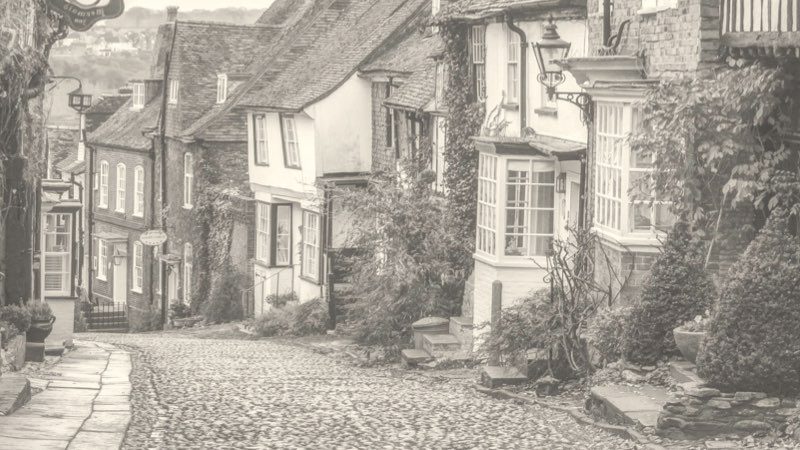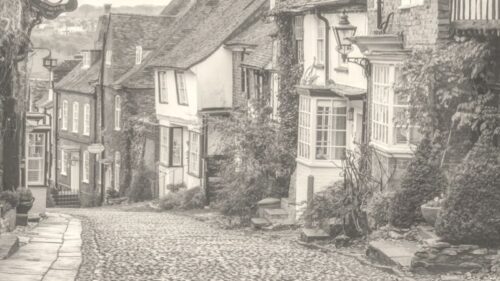
The Life And Ministry Of George Drake
Gospel Standard 1868:
We give a few particulars respecting the illness and death of our dear departed minister, Mr. Drake. He had been very unwell for some time, but was taken with a severe bilious attack and much sickness, which brought on extreme weakness; and from this he never recovered. He continued preaching up to the first Lord’s day in July. On that day he preached in the morning from Phil. 4:19, and in the afternoon administered the ordinance of the Lord’s Supper. He got out to the prayer meeting on the Monday evening following, but was not able to come among us after.
In the early part of his affliction hymn 934 was much blessed to him. He sang it all through as he lay in bed. Another time, as his wife and daughter were weeping over him, he said, “Weep not for me. It is all right with me.” At times he appeared very low in his mind, and at other times much comforted. He once said to a friend, if it were the Lord’s will, he should like to get better, for the sake of the church and his family.
A short time before he was laid up, when at the prayer meeting, he was led to speak in prayer in a most remarkable way. He prayed most solemnly and earnestly for his enemies and the prosperity of the church. He mentioned the circumstance as he was administering the ordinance to us the last time.
On the Friday night previous to his death, as one of the members was sitting by him, he said, “A grain of grace is worth a thousand worlds. My hope is in Christ. Dying, yet living. Christ is mine.” Through extreme weakness, he could only say a few words at intervals, but was very patient and calm, and the friends who attended him felt it indeed a pleasure to be with him. On the Saturday morning one of the deacons went to see him. He appeared very pleased to see him, and asked him to read a portion of Scripture, and speak in prayer, which he accordingly did. Amongst other things, our minister said, “I know in whom I have believed. To have a good hope through grace is worth a thousand worlds.” He then praised the Lord for his goodness, somewhat after the language of Ps. 103. The utterance of his heart was praise, and he spoke of the Lord’s faithfulness and long suffering.
At night two of the members sat up with him. The first part of the night he lay quiet, not noticing any one, but at intervals appeared to be in prayer. Soon after three in the morning, he desired one of the friends to read a portion of Scripture and speak in prayer. One of them read Ps. 111, and engaged in prayer. As soon as the friend had concluded, he broke forth rapturously, praising the Lord for his goodness and mercy toward him, so loud that he quite astonished those that were with him. He then prayed in a most solemn and earnest manner, the substance of his prayer being that the church might be kept in union, that everything dishonouring the gospel might be kept from them, and that they might be bound together in the bonds of peace. He concluded in a most solemn manner with, “Amen! amen! amen!” One of the friends remarked that it was better to go to the house of mourning than the house of mirth. He said, “Yes; but, O, how solemn the mourning!” A short time after this, he held up one arm, and distinctly said,”I believe;” but his voice getting so low, the friends could not hear every word. The friends say it was a night ever to be remembered, for they truly believed the Lord was with them.
During Sunday he frequently asked for water. Some of the friends offered him wine, but he refused it, and asked for water. Water, he said, was good in every respect. One of the friends said to him, “You have tasted of the water of eternal life.” He said, “Yes, yes.” Those were the last words he ever said to be understood. He tried to speak several times afterwards, but had not strength. He lay quiet and calm, and perfectly sensible up to two o’clock on Monday morning, when it was very evident his end was near.
He sweetly fell asleep in Jesus, without a sigh or groan, a little before nine in the morning, August 10th; 1868.
D. F. And U. C.
Dicker, Hellingly, Sussex.
George Drake (1811-1869) was a Strict and Particular Baptist preacher. He served as pastor for the church meeting at Charlesworth, Manchester (this chapel was opened by William Gadsby in 1836, who first preached to the people in 1816). He also served as pastor for the church meeting at Zoar Chapel, Dicker, Sussex.




